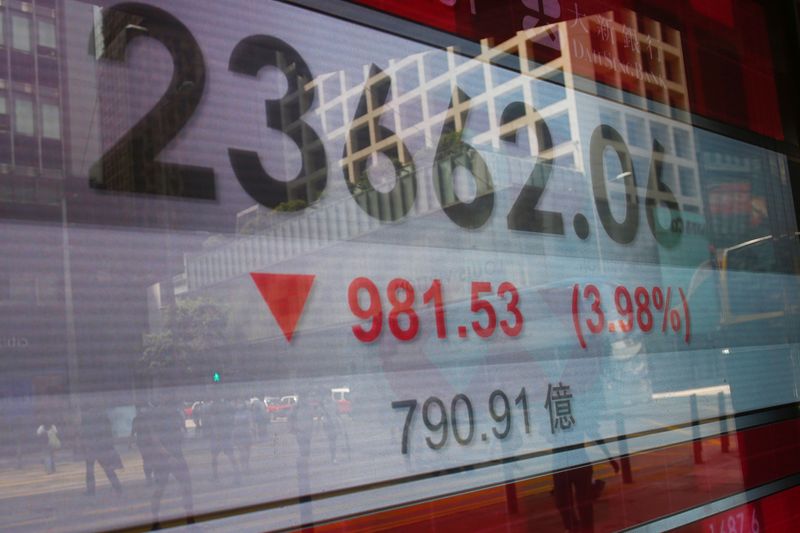U.S. stocks showed a mixed performance on Friday, with Treasury yields experiencing a dip due to lackluster earnings and uncertainties surrounding central bank policy and geopolitical tensions.
Gold and crude oil prices saw gains as investors kept a wary eye on unfolding events in the Middle East.
Among the major U.S. equity indexes, only the Dow saw positive movement. The Nasdaq declined more than the S&P 500, primarily weighed down by mega-cap tech and tech-related momentum stocks.
Both the S&P and the Dow were poised for their third consecutive weekly percentage losses, while the Nasdaq seemed headed for its fourth consecutive down week.
“The market lacks conviction in either direction,” noted Michael Green, chief strategist at Simplify Asset Management in Philadelphia. “There’s confusion about the overall health of the economy.”
Although it’s still early in the first-quarter reporting season, expectations have dampened. Analysts now anticipate aggregate S&P 500 earnings growth of 2.9% year-on-year, down from the 5.1% estimate as of April 1, according to LSEG.
“Earnings reports so far are very much a mixed bag,” Green added. “Most companies are reporting relatively lackluster results and guidance that is somewhat mixed.”
Chicago Federal Reserve President Austan Goolsbee stated on Friday that the Fed’s restrictive policy is “appropriate” given economic strength and the slower-than-expected process of bringing inflation down closer to its 2% target.
“The Fed is, like the rest of us, somewhat struggling with the conflicting data,” Green said. “Goolsbee generally tends to be a fiscal dove.”
Tensions in the Middle East seemed to stabilize after Tehran downplayed Israel’s retaliatory drone strike against Iran, an action seemingly aimed at averting further regional escalation of conflict.
The Dow Jones Industrial Average gained 137.44 points, or 0.36%, closing at 37,912.82, while the S&P 500 lost 16.07 points, or 0.32%, to 4,995.05, and the Nasdaq Composite dropped 151.86 points, or 0.97%, to 15,449.64.
In Europe, shares dipped to their lowest level in over a month due to concerns about escalating turmoil in the Middle East, despite some positive earnings results.
The pan-European STOXX 600 index declined by 0.13%, and MSCI’s gauge of global stocks shed 0.45%.
Emerging market stocks fell by 1.34%, with MSCI’s broadest index of Asia-Pacific shares outside Japan closing 1.59% lower, and Japan’s Nikkei declining by 2.66%.
Treasury yields slightly decreased as worries over a potential escalation of conflict in the Middle East eased.
Benchmark 10-year notes rose 8/32 in price to yield 4.6166%, down from 4.647% late on Thursday.
The dollar weakened as currency markets stabilized after a flight to the Swiss Franc and the yen following Israel’s drone attack on Iran.
The dollar index fell by 0.22%, with the euro rising by 0.23% to $1.0667.
The Japanese yen strengthened by 0.05% versus the greenback at 154.59 per dollar. Sterling was last trading at $1.2429, down 0.05% on the day.
Crude oil prices initially dipped as supply concerns eased following Iran’s subdued response, but later reversed course.
U.S. crude rose by 0.81% to $83.40 per barrel, and Brent was last at $87.57, up 0.53% on the day.
Gold advanced, marking its fifth straight weekly gain. Spot gold added 0.7% to $2,393.60 an ounce.




 By:
By:





